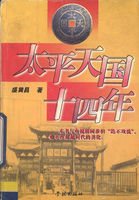In all judgements wherein the relation of a subject to the predicate is cogitated (I mention affirmative judgements only here; the application to negative will be very easy), this relation is possible in two different ways.Either the predicate B belongs to the subject A, as somewhat which is contained (though covertly) in the conception A; or the predicate B lies completely out of the conception A, although it stands in connection with it.In the first instance, I term the judgement analytical, in the second, synthetical.
Analytical judgements (affirmative) are therefore those in which the connection of the predicate with the subject is cogitated through identity; those in which this connection is cogitated without identity, are called synthetical judgements.The former may be called explicative, the latter augmentative judgements; because the former add in the predicate nothing to the conception of the subject, but only analyse it into its constituent conceptions, which were thought already in the subject, although in a confused manner;the latter add to our conceptions of the subject a predicate which was not contained in it, and which no analysis could ever have discovered therein.For example, when I say, "All bodies are extended," this is an analytical judgement.For I need not go beyond the conception of body in order to find extension connected with it, but merely analyse the conception, that is, become conscious of the manifold properties which I think in that conception, in order to discover this predicate in it: it is therefore an analytical judgement.On the other hand, when I say, "All bodies are heavy,"the predicate is something totally different from that which I think in the mere conception of a body.By the addition of such a predicate, therefore, it becomes a synthetical judgement.
Judgements of experience, as such, are always synthetical.For it would be absurd to think of grounding an analytical judgement on experience, because in forming such a judgement I need not go out of the sphere of my conceptions, and therefore recourse to the testimony of experience is quite unnecessary.That "bodies are extended" is not an empirical judgement, but a proposition which stands firm a priori.For before addressing myself to experience, Ialready have in my conception all the requisite conditions for the judgement, and I have only to extract the predicate from the conception, according to the principle of contradiction, and thereby at the same time become conscious of the necessity of the judgement, a necessity which I could never learn from experience.On the other hand, though at first I do not at all include the predicate of weight in my conception of body in general, that conception still indicates an object of experience, a part of the totality of experience, to which I can still add other parts; and this I do when Irecognize by observation that bodies are heavy.I can cognize beforehand by analysis the conception of body through the characteristics of extension, impenetrability, shape, etc., all which are cogitated in this conception.But now I extend my knowledge, and looking back on experience from which I had derived this conception of body, I find weight at all times connected with the above characteristics, and therefore I synthetically add to my conceptions this as a predicate, and say, "All bodies are heavy." Thus it is experience upon which rests the possibility of the synthesis of the predicate of weight with the conception of body, because both conceptions, although the one is not contained in the other, still belong to one another (only contingently, however), as parts of a whole, namely, of experience, which is itself a synthesis of intuitions.
But to synthetical judgements a priori, such aid is entirely wanting.If I go out of and beyond the conception A, in order to recognize another B as connected with it, what foundation have I to rest on, whereby to render the synthesis possible? I have here no longer the advantage of looking out in the sphere of experience for what I want.Let us take, for example, the proposition, "Everything that happens has a cause." In the conception of "something that happens," I indeed think an existence which a certain time antecedes, and from this I can derive analytical judgements.But the conception of a cause lies quite out of the above conception, and indicates something entirely different from "that which happens,"and is consequently not contained in that conception.How then am Iable to assert concerning the general conception- "that which happens"- something entirely different from that conception, and to recognize the conception of cause although not contained in it, yet as belonging to it, and even necessarily? what is here the unknown = X, upon which the understanding rests when it believes it has found, out of the conception A a foreign predicate B, which it nevertheless considers to be connected with it? It cannot be experience, because the principle adduced annexes the two representations, cause and effect, to the representation existence, not only with universality, which experience cannot give, but also with the expression of necessity, therefore completely a priori and from pure conceptions.
Upon such synthetical, that is augmentative propositions, depends the whole aim of our speculative knowledge a priori; for although analytical judgements are indeed highly important and necessary, they are so, only to arrive at that clearness of conceptions which is requisite for a sure and extended synthesis, and this alone is a real acquisition.
V.In all Theoretical Sciences of Reason, Synthetical Judgements "a priori" are contained as Principles.















